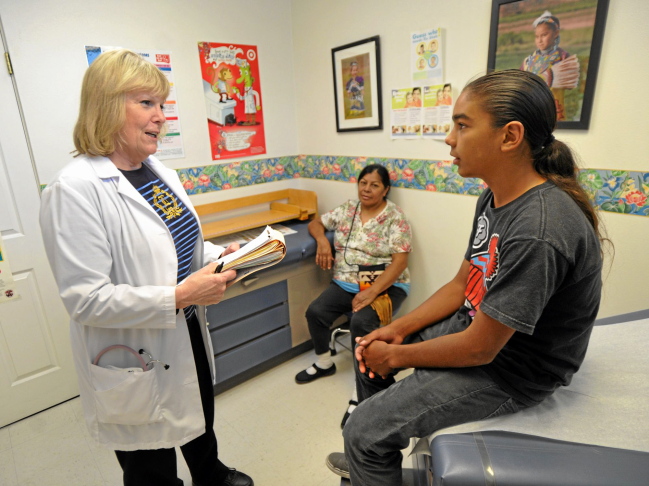Addressing the Unique Needs of the LGBTQ CommunitySubmitted By: End AIDS Washington Team, Washington State Department of Health
In support of the community, the End AIDS Washington team wants to highlight some of the work around the state to foster and build systems that allow everyone to have fair access and opportunity to be safe, healthy, and free from discrimination. LGBTQ Commission and Reproductive Health Access for All Act Thanks to Washington’s LGBTQ Caucus, the legislature recently passed two bills to advance equity and health. Senate Bill 5356 creates an LGBTQ Commission, seated in the Governor’s office, to work with state agencies to develop and implement policies to address the unique needs of the LGBTQ community. The Reproductive Health Access for All Act continues to strengthen the foundation for equity-driven policy and health care. Senate Bill 5602 advances equity by removing barriers to reproductive health care, by prohibiting health care discrimination on the basis of immigration status or gender identity and improving coverage and access to healthcare that meets the unique needs of LGBTQ persons. Washington’s LGBTQ Healthcare Recommendations In September 2018, End AIDS Washington achieved a milestone when the Bree Collaborative submitted LGBTQ Healthcare Recommendations to Health Care Authority to inform healthcare purchasing and delivery. The recommendations are multi-sectorial and align care delivery with existing evidence-based, culturally sensitive standard of care for LGBTQ people in Washington. Among the recommendations are actions you, our partners in health and health policy, can take to create an inclusive and welcoming environment for LGBTQ persons in your setting including:
The Power of U = U (Undetectable = Untransmittable) Several of us attended CDC’s National HIV Prevention Conference last month and were inspired and moved by the passion, energy, and pride demonstrated as presenters and participants shared their experiences and support for U=U. U=U is a health equity initiative to end the dual epidemics of HIV and HIV-related stigma and has been adopted and promoted by the CDC as well as the Washington State Department of Health. We encourage you to make a difference in your community by promoting and supporting U=U! Look for the Department of Health at the following 2019 Pride events:
Visit the Gay Pride Calendar to view a schedule of international PRIDE events.
Past blogsPublic Health: What is Happening in Olympia By: Anne Burkland, MPA
House Bill 1074: Last week the Legislature approved prohibiting the sale of cigarettes, tobacco products and vapor products to people under the age of 21. The Governor is expected to sign the bill, and the law will take effect on January 1, 2020.
How You Can Help Create the Healthiest Washington During National Public Health Week By: Heather Thomas, MPA, Public and Government Affairs Manager, Snohomish Health District 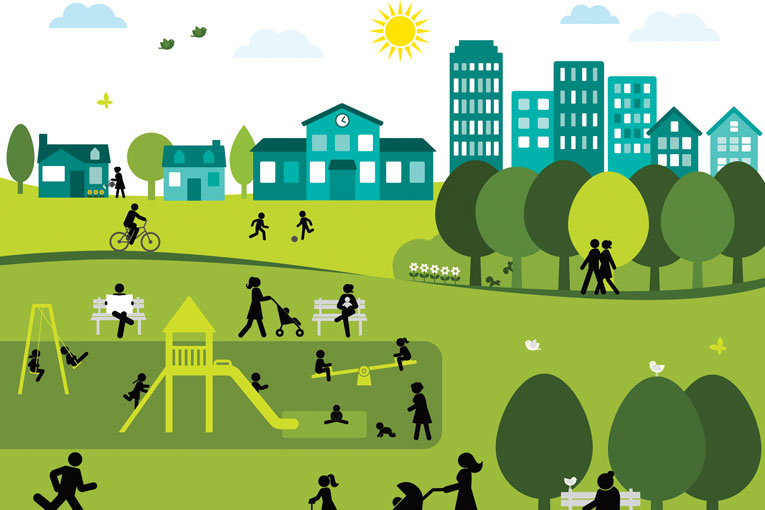 National Public Health Week will be celebrated April 1-7, and we want you to join us in recognizing the work of public health all week long. The American Public Health Association (APHA) makes it easy for all of us to participate by developing an annual theme and daily topics. The 2019 theme is “For science. For action. For health.” Come meet with us for networking and discussion on April 3rd before starting your workday for Public Health over Bagels and Coffee from 8:00 – 9:00 at 705 second ave, 6th floor meeting room, Seattle WA. Start giving some thought now for how you—and hopefully your organization—can take part. APHA has created a communications toolkit online, with logos, social media content and fact sheets that you can use. Better yet, look at their framework and see how you can share information, resources or photos of your work around these daily topics... Read page National Public Health Week will be celebrated April 1-7, and we want you to join us in recognizing the work of public health all week long. The American Public Health Association (APHA) makes it easy for all of us to participate by developing an annual theme and daily topics. The 2019 theme is “For science. For action. For health.” Come meet with us for networking and discussion on April 3rd before starting your workday for Public Health over Bagels and Coffee from 8:00 – 9:00 at 705 second ave, 6th floor meeting room, Seattle WA. Start giving some thought now for how you—and hopefully your organization—can take part. APHA has created a communications toolkit online, with logos, social media content and fact sheets that you can use. Better yet, look at their framework and see how you can share information, resources or photos of your work around these daily topics... Read page
Investing in the Future of Our Public Health System By: Ian Corbridge, Director of Quality and Performance, Washington State Hospital Association
This said, pivotal moments or crises in our lives often help us reprioritize what is important. My daughter was diagnosed with a serious medical condition after her first birthday. As new parents we were devastated, and we immediately began treatment. Once her care began, we started thinking about her long-term needs. What would she need to be successful? What would happen to our daughter if we, her parents, were no longer around? Faced with mounting challenges, we made the critical decision to invest in our daughter’s future to ensure she has a vibrant and happy life. Read page
Public Health in the New Year By: Ginny Weir, Director, Dr. Robert Bree Collaborative Live Well San Diego By: Nick Macchione, MS, FACHE, Agency Director 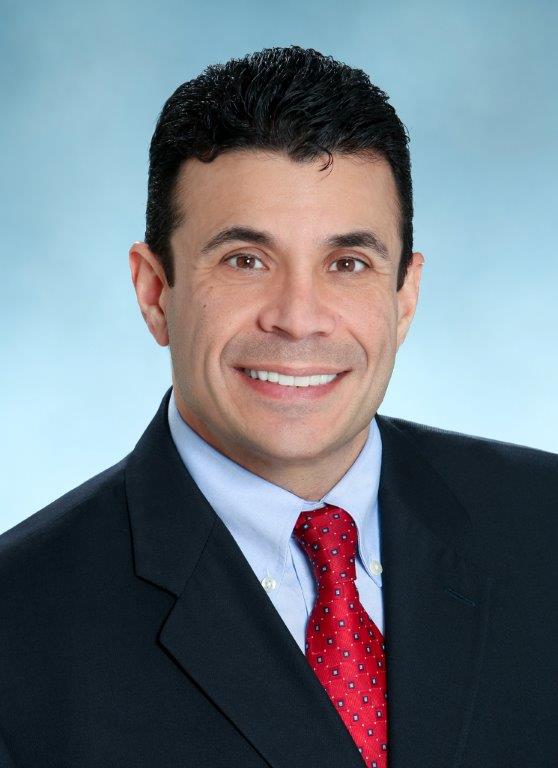
When asked, what is Live Well San Diego? I say it’s all about improving lives. Live Well San Diego is a regional vision that we have adopted, which outlines what we are doing collectively to build better health, live safely and thrive. In County government, it’s our north star that helps guide the provision of housing, health and human services and resources. It’s how we do business and improve the lives of one in three or approximately 1.3 million San Diegans. It all started in 2008. I was the newly promoted director of the County’s Health and Human Services Agency. I was tasked with answering one question: “How do we help over 3 million San Diego residents lead healthier lives?” Seeking solutions was no simple or straightforward task. Complex problems require complex solutions, and in order to create sustainable improvements across a diverse and geographically vast region, we had to seek input representing a range of diverse perspectives in the brainstorming process. Read more.
Let's Talk Immunization By: Mackenzie Melton and Izzy BrandstetterWithinReach Immunization Experts 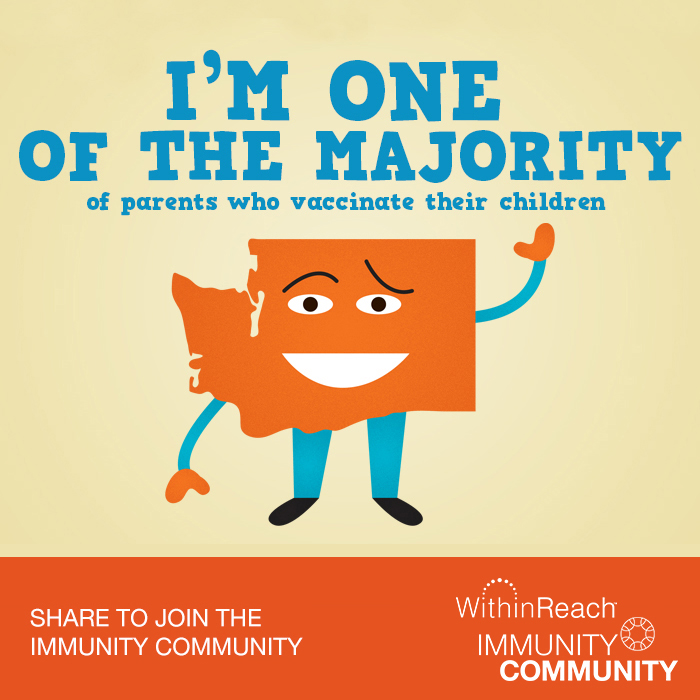 August 1, 2018Since August is National Immunization Awareness Month, we felt it’s only appropriate to highlight why the rush and overwhelm to immunize, in the summer months especially, are so crucial to maintaining health and wellness among our families and throughout our communities.With children spending the majority of the day together in a classroom during the year, it’s also the optimal breeding ground for many bacteria and viruses that can cause serious illness. Fortunately, a large portion of these illnesses can be prevented through routine immunizations. And for those with pre-existing health conditions that hinder them from being immunized themselves, we vaccinate so that they can be protected from illness, and benefit from community immunity. Read More. August 1, 2018Since August is National Immunization Awareness Month, we felt it’s only appropriate to highlight why the rush and overwhelm to immunize, in the summer months especially, are so crucial to maintaining health and wellness among our families and throughout our communities.With children spending the majority of the day together in a classroom during the year, it’s also the optimal breeding ground for many bacteria and viruses that can cause serious illness. Fortunately, a large portion of these illnesses can be prevented through routine immunizations. And for those with pre-existing health conditions that hinder them from being immunized themselves, we vaccinate so that they can be protected from illness, and benefit from community immunity. Read More. Rethinking Our Approach for Urban Indian Studies By Adrian Dominguez, MS and Rose James, PhDUrban Indian Health Institute, Seattle Indian Health Board
Summer Break with or without Hunger
Adverse Childhood Experiences and Public Health
Celebrating National Public Health WeekBy Ginny Weir, MPH, Director, Bree Collaborative 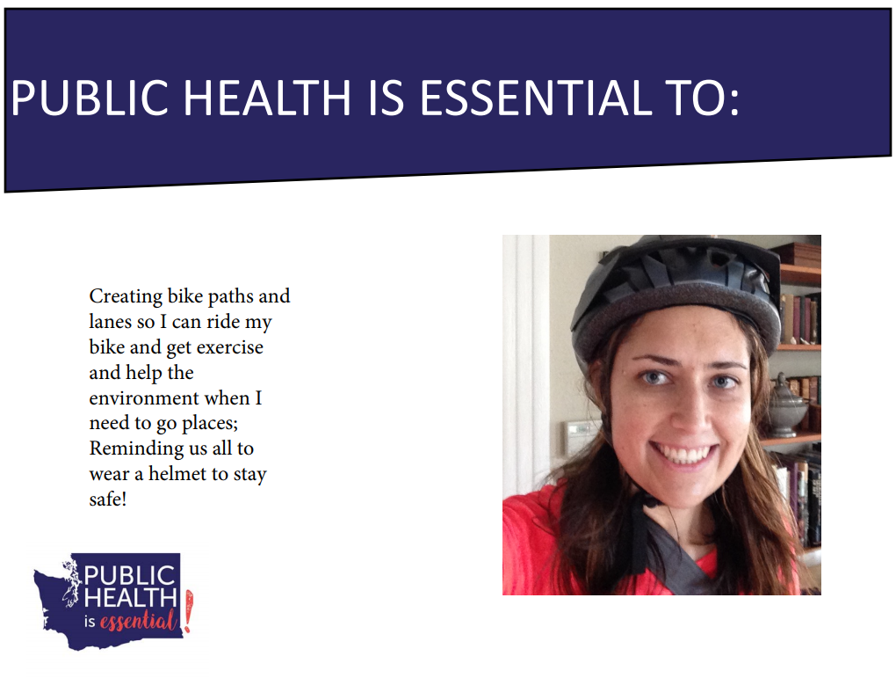 April 1, 2018 Public health is essential to building a healthier Washington and stands on foundational public health services like chronic disease and injury prevention, maternal and child family health, access to clinical care, environmental public health, vital records, and communicable disease control. Although Public health week has already passed, there are still plenty of ways to get involved and advocate for a healthy community. Read more. Legislative Education Day: What Comes Next?By Heather Thomas, MPA, Public & Government Affairs Manager, Snohomish Health District  March 1, 2018 March 1, 2018On February 7, more than 150 public health ambassadors from around the state gathered in Olympia for our annual WSPHA Legislative Education Day. The morning session kicked off with a welcome from WSPHA president David Reyes, followed by remarks from Secretary of Health John Wiesman. Secretary Wiesman shared his perspectives on a variety of public health issues at the state and federal level. Read more
Legislative Education DayBy Anne Burkland, Government Relations Specialist, Public Health Seattle and King County 
February 1, 2018
Join public health officials from across the state and have your voice heard at our annual legislative education day on February 7, 2018.Your day will begin with Secretary of Health John Wiesman. You’ll also hear from state lawmakers and your colleagues who are leading the charge for more funding dedicated to public health. You’ll be provided talking points and an opportunity to develop and practice the key messages you want your representatives to hear. Read more The Opioid Epidemic in WashingtonBy Ginny Weir, Program Director, Dr. Robert Bree Collaborative  January 1, 2018The opioid epidemic has impacted every community in Washington State. Across the country, opioid overdose is now the leading cause of accidental death. But some counties are hit harder than others and disparities exist between how racial and ethnic groups are burdened with the epidemic. Solutions must be both based in local communities and supported across the state. Our Washington state opioid response plan calls on all of us, state government agencies, local health departments, professional groups, community organizations, health care systems, and others to work together on priority areas. Read more. January 1, 2018The opioid epidemic has impacted every community in Washington State. Across the country, opioid overdose is now the leading cause of accidental death. But some counties are hit harder than others and disparities exist between how racial and ethnic groups are burdened with the epidemic. Solutions must be both based in local communities and supported across the state. Our Washington state opioid response plan calls on all of us, state government agencies, local health departments, professional groups, community organizations, health care systems, and others to work together on priority areas. Read more.
|
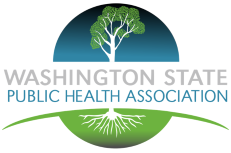
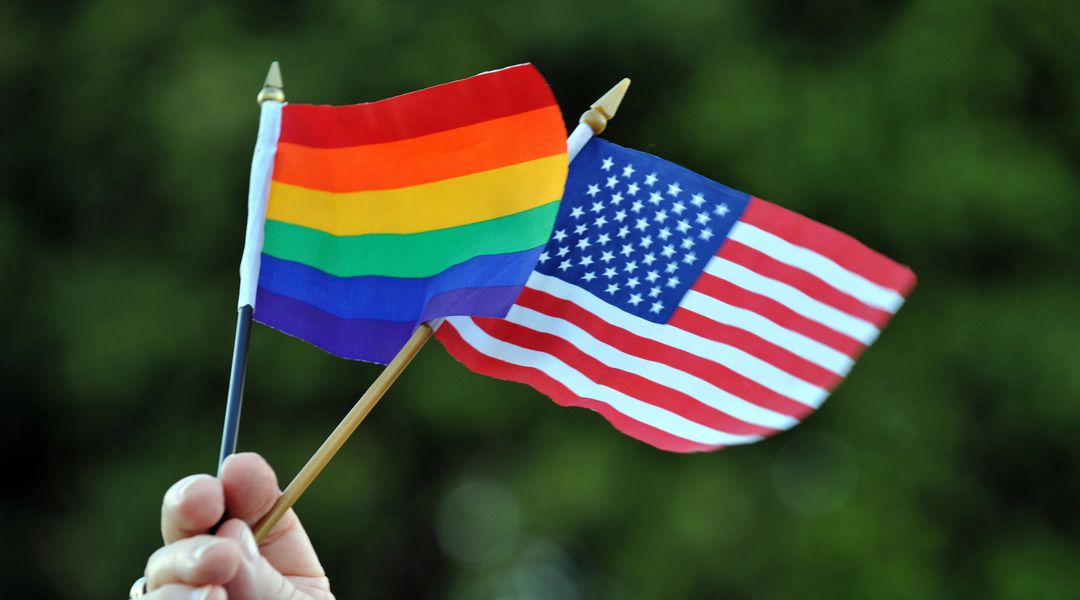 LGBTQ pride is a celebration of confidence, self-respect, and solidarity as expressed by LGBTQ communities and associated with openness regarding sexual orientation, gender identity, and gender expression. It honors the resilience and strength of LGBTQ communities in the face of historical and systemic oppression.
LGBTQ pride is a celebration of confidence, self-respect, and solidarity as expressed by LGBTQ communities and associated with openness regarding sexual orientation, gender identity, and gender expression. It honors the resilience and strength of LGBTQ communities in the face of historical and systemic oppression. With just under a month left in the 2019 legislative session, we’ve seen great advances in public health priorities. Below is a sampling of
With just under a month left in the 2019 legislative session, we’ve seen great advances in public health priorities. Below is a sampling of  Like most Americans, investing and thinking about the future is not easy for me. Investing money now for when I’m 70 is a lot less appealing in the moment than buying a new carbon fiber mountain bike.
Like most Americans, investing and thinking about the future is not easy for me. Investing money now for when I’m 70 is a lot less appealing in the moment than buying a new carbon fiber mountain bike. ’d argue that nearly everything we do falls under the umbrella of public health. From responding to natural disasters to city planning, every sidewalk (or lack thereof), drop of (treated) water, and medical procedure has an effect on our health. Bill Foege, a past Director of the Centers for Disease Control and Prevention, said this more poetically, “There is no human endeavor that is outside the realm of public health.” This is powerful and inspiring – but also makes telling the story of public health more difficult. How do we talk about public health if everything we do is in fact public health? Who can speak for public health if public health is part of all that we do?
’d argue that nearly everything we do falls under the umbrella of public health. From responding to natural disasters to city planning, every sidewalk (or lack thereof), drop of (treated) water, and medical procedure has an effect on our health. Bill Foege, a past Director of the Centers for Disease Control and Prevention, said this more poetically, “There is no human endeavor that is outside the realm of public health.” This is powerful and inspiring – but also makes telling the story of public health more difficult. How do we talk about public health if everything we do is in fact public health? Who can speak for public health if public health is part of all that we do? 